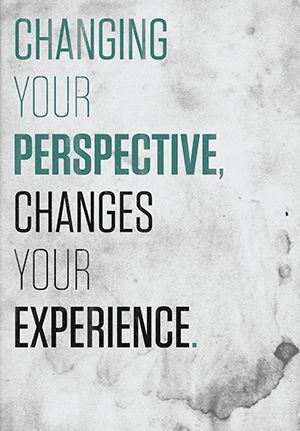Eight Pillars of Joy: Perspective
Introduction to The Eight Pillars of Joy
Let’s begin our exploration of the Eight Pillars of Joy. In this learning circle, we’ll use them as opportunities to reframe negative experiences. Please do not feel that you are being told not to have any negative feelings about past experiences. Think of this instead as an invitation to put aside any feelings which cause you distress for a brief period of time. Don’t feel any shame if your negative feelings persist – your feelings are your feelings.When you think about reframing your experiences, we ask you to remember something author Ken Liu said: as much as we try to make sense of our past experiences by putting them into a coherent story, the truth of our lives is that we are not characters in an epic novel, nor are we always the author of our own stories. This means that we’re not always (or intrinsically) heroes, victims, bystanders, someone else’s parent/child/partner, good, or bad. We can reframe our story at any time, and if doing so makes you feel better, please use these habits of mind to help you do so.
Perspective

A different view tells a whole new story
With our mind we create our own world
View obstacles as ways to improve yourself
When you see a single woman with an overflowing grocery cart, it might look like she’s hoarding food in the middle of a pandemic. But what you don’t see are the six kids waiting at home along with her husband and parents who are living with them. When they say “don’t judge a book by its cover,” this is what they mean. Until you truly get to know someone, you don’t know anything about them.
It’s okay to speculate on what could be happening in other people’s lives. If you’re stuck in a situation where frustration would normally be eating you up, think about the others stuck in that same situation with you. Whether they’re in the same room with you, or standing in a similar line in another bank in a different town, what could they be worried or frustrated about? If we pull ourselves away from our own issues, we are less likely to ruminate on them, because we know we are not alone in our thoughts and feelings.
Bringing your thoughts away from yourself and your own problems will ultimately make you feel better, while focusing on your own frustration will only make you feel worse, physically as well as mentally. If you focus on your differences from others, whether it be because of your beliefs, a specific food you like, or your negative experiences, you are building walls between yourself and the world. We can literally hear this separation in the language we use. As humans, we tend to think in terms of I and me. Self-centeredness is our default perspective because we are the center of our own life, but taking on the perspective of others can lead us to change the way we feel and act.
The more self-centered we are, the more we will use the words I, me, or mine. The more often we use those words, the more we set ourselves up for health events like a heart attack or deep depression. This was found by Larry Scherwitz in a multi-center study of coronary heart disease and Johannes Zimmerman. In fact, “self-involvement”, according to Scherwitz, is a good predictor of an early death.
“A healthy perspective is the foundation of joy and happiness, because the way we see the world is the way we experience the world. Changing the way we see the world in turn changes the way we feel and the way we act, which changes the world itself.” - Douglas Abrams, The Book of Joy
Exercises
- Think about the last time you felt grumpy or grouchy and the thoughts you were having at the time. How much of your thoughts were taken up with I, me, or mine?
- Answer these two questions to yourself: When tragedy strikes, do you look for the loss of life, or those who are helping the best they can? Do you automatically assume the worst of someone you don’t know, or do you give them the benefit of doubt?
- Take something bad that has happened to you and think about anything good that may have come from it. For example, the Dali Lama cites having to leave his homeland as giving him the chance to meet new people, learn more about the world, and in general, become a better person.